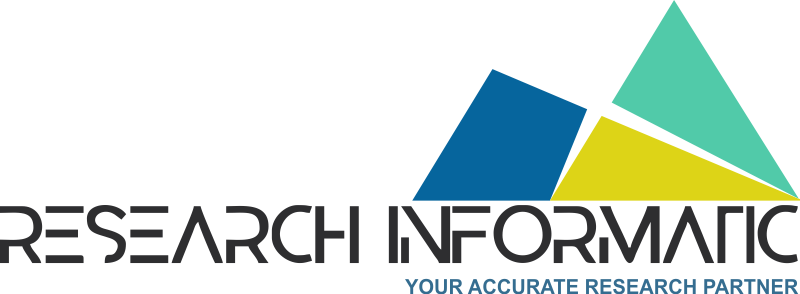
Progenitor Cell-Based Market Size, Share & Trends Analysis Report By Type (Allogeneic Stem Cell and Autologous Stem Cell), Therapeutic Application (Musculoskeletal Disorders, Wound and Injuries, Neurology, Cardiovascular Diseases (CVD), Gastrointestinal Diseases, Surgeries and Others), Cell Source (Adipose Tissue- Derived Mesenchymal Stem Cells, Bone Marrow- Derived Mesenchymal Stem Cells, Embryo/ Cord Blood Stem Cells and Others), End User (Laboratory, Hospitals, Research Institute and Others), Region (North America, Europe, Asia-Pacific, Middle East & Africa, and South America)—Forecast till 2028
Categories: Life Science | Format : 
Market Dynamics:
The global Progenitor Cell-Based market is forecasted to witness a robust growth rate on account of growth in the industry, as per an updated report by Research Informatic. Progenitor Cell-Based market is expected to grow at a compound annual growth rate (CAGR) of 7.80% from 2019 to 2028. The industry experts offered forecasts into industry structure, market segmentation, product assessment, competitive landscape, penetration, as well as on emerging technology trends. However, primary, and secondary research, their analysis is conducted in terms of years of professional expertise of the researchers in respective industries. The study also anticipates where the market will be moving in the next five to ten years, by examining historical trends and ongoing market conditions.
The global Progenitor Cell-Based market is set to register a significant market expansion during the forecast period owing to the growing popularity in recent years. Prominently the report evaluates the market with advanced research methodologies. Moreover, the research specifies the market share occupied by the major players and offers a comprehensive examination of the increasing investment pocket in the global market. However, the stringent regulatory regulations and fluctuating raw material prices is expected to restrain the growth of the global Progenitor Cell-Based market during the review period.
COVID-19 Analysis:
With the expanding number of COVID-19 diseases universally, limitations on various development on Progenitor Cell-Based market are expanding. As the worldwide economy battles with the pandemic circumstance, its effect on the worldwide exchange and store network is becoming inferable from the quick debilitating of worldwide speculation streams. Severe regulation measures forced by administrations of different nations and preventive measures to control the impact of the incidence have prompted a critical limitation in transportation, driving a thump on impact internationally. This is encouraging an interest and supply hole, consequently bringing about diminished creation of stress help supplements. This pattern is required to keep inferable from the vulnerability in the worldwide Progenitor Cell-Based market and measures to address the inventory/request lop-sidedness.
Market Segmentation:
The global Progenitor Cell-Based market has been segmented based on Type, Technology, End User, and Region.
By type, the market has been segmented into Allogeneic Stem Cell and Autologous Stem Cell.
Based on the Therapeutic Application, the market has been segmented into Musculoskeletal Disorders, Wound and Injuries, Neurology, Cardiovascular Diseases (CVD), Gastrointestinal Diseases, Surgeries and Others.
On the basis of the Cell Source, the market has been segmented into Adipose Tissue- Derived Mesenchymal Stem Cells, Bone Marrow- Derived Mesenchymal Stem Cells, Embryo/ Cord Blood Stem Cells and Others.
The market, by end-user, has been segmented into Laboratory, Hospitals, Research Institute and Others.
After estimating the market sizes and estimates, the numbers are verified with industry participants and key opinion leaders. The wide network of industry participants adds value to the research and verify the numbers and estimates provided in the research.
Regional Analysis:
Geographically, the report on the Progenitor Cell-Based Market has been classified into Asia-Pacific, North America, Europe, and the rest of the world.
Asia-Pacific is likely to drive the largest market for global Progenitor Cell-Based market owing to the largest market share of XX % in 2019. The regional market is further segmented into India, China, Vietnam, and Indonesia.
North America is expected to register the second largest market of the global market because of the XX% market share in 2019. The regional market growth is driven by the presence of the Progenitor Cell-Based industry in North America. Moreover, the increasing requirement for the development of modernization of Progenitor Cell-Based implements is anticipated to create lucrative opportunities for the market during the review period.
Major Players:
The players accounted for a major company share of around 50% in the global Progenitor Cell-Based market owing to their huge production facilities, global revenue base, accessibility of raw materials (mineral reserves), and global distribution network. Furthermore, the adoption of various market plans of actions such as R&D, winning strategies, agreements, partnerships, joint ventures, and product launches is evaluated to benefit these players increase maximum revenue, and long-term advancement during the forecast period. The major players in the global Progenitor Cell-Based market include Bristol-Myers Squibb Company, Boehringer Ingelheim International GmbH, GlaxoSmithKline plc., Gilead Sciences, Inc., Thermo Fisher Scientific Inc., AbbVie Inc., F. Hoffmann-La Roche Ltd, Pfizer Inc., Merck & Co., Inc., Abbott, Novartis AG, Baxter, STEMCELL Technologies Inc., Organogenesis Inc., Vericel Corporation, Takara Bio Inc., Alcon Vision LLC, Cryo-Cell, Osiris and ThermoGenesis Holdings, Inc.
Global Progenitor Cell-Based Market Growth, Trend and Forecast 2021-2027
Chapter 1 Progenitor Cell-Based Market Overview
1.1 Product Overview and Scope of Progenitor Cell-Based
1.2 Progenitor Cell-Based Market Segmentation by Type
1.2.1 Global Production Market Share of Progenitor Cell-Based by Type in 2020
1.2.1 Type 1
1.2.2 Type 2
1.2.3 Type 3
1.3 Progenitor Cell-Based Market Segmentation by Application
1.3.1 Progenitor Cell-Based Consumption Market Share by Application in 2020
1.3.2 Application 1
1.3.3 Application 2
1.3.4 Application 3
1.4 Progenitor Cell-Based Market Segmentation by Regions
1.4.1 North America
1.4.2 China
1.4.3 Europe
1.4.4 Southeast Asia
1.4.5 Japan
1.4.6 India
1.5 Global Market Size (Value) of Progenitor Cell-Based (2014-2027)
Chapter 2 Global Economic Impact on Progenitor Cell-Based Industry
2.1 Global Macroeconomic Environment Analysis
2.1.1 Global Macroeconomic Analysis
2.1.2 Global Macroeconomic Environment Development Trend
2.2 Global Macroeconomic Environment Analysis by Regions
Chapter 3 Global Progenitor Cell-Based Market Competition by Manufacturers
3.1 Global Progenitor Cell-Based Production and Share by Manufacturers (2020 and 2020)
3.2 Global Progenitor Cell-Based Revenue and Share by Manufacturers (2020 and 2020)
3.3 Global Progenitor Cell-Based Average Price by Manufacturers (2020 and 2020)
3.4 Manufacturers Progenitor Cell-Based Manufacturing Base Distribution, Production Area and Product Type
3.5 Progenitor Cell-Based Market Competitive Situation and Trends
3.5.1 Progenitor Cell-Based Market Concentration Rate
3.5.2 Progenitor Cell-Based Market Share of Top 3 and Top 5 Manufacturers
3.5.3 Mergers & Acquisitions, Expansion
Chapter 4 Global Progenitor Cell-Based Production, Revenue (Value) by Region (2014-2021)
4.1 Global Progenitor Cell-Based Production by Region (2014-2021)
4.2 Global Progenitor Cell-Based Production Market Share by Region (2014-2021)
4.3 Global Progenitor Cell-Based Revenue (Value) and Market Share by Region (2014-2021)
4.4 Global Progenitor Cell-Based Production, Revenue, Price and Gross Margin (2014-2021)
4.5 North America Progenitor Cell-Based Production, Revenue, Price and Gross Margin (2014-2021)
4.6 Europe Progenitor Cell-Based Production, Revenue, Price and Gross Margin (2014-2021)
4.7 China Progenitor Cell-Based Production, Revenue, Price and Gross Margin (2014-2021)
4.8 Japan Progenitor Cell-Based Production, Revenue, Price and Gross Margin (2014-2021)
4.9 Southeast Asia Progenitor Cell-Based Production, Revenue, Price and Gross Margin (2014-2021)
4.10 India Progenitor Cell-Based Production, Revenue, Price and Gross Margin (2014-2021)
Chapter 5 Global Progenitor Cell-Based Supply (Production), Consumption, Export, Import by Regions (2014-2021)
5.1 Global Progenitor Cell-Based Consumption by Regions (2014-2021)
5.2 North America Progenitor Cell-Based Production, Consumption, Export, Import by Regions (2014-2021)
5.3 Europe Progenitor Cell-Based Production, Consumption, Export, Import by Regions (2014-2021)
5.4 China Progenitor Cell-Based Production, Consumption, Export, Import by Regions (2014-2021)
5.5 Japan Progenitor Cell-Based Production, Consumption, Export, Import by Regions (2014-2021)
5.6 Southeast Asia Progenitor Cell-Based Production, Consumption, Export, Import by Regions (2014-2021)
5.7 India Progenitor Cell-Based Production, Consumption, Export, Import by Regions (2014-2021)
Chapter 6 Global Progenitor Cell-Based Production, Revenue (Value), Price Trend by Type
6.1 Global Progenitor Cell-Based Production and Market Share by Type (2014-2021)
6.2 Global Progenitor Cell-Based Revenue and Market Share by Type (2014-2021)
6.3 Global Progenitor Cell-Based Price by Type (2014-2021)
6.4 Global Progenitor Cell-Based Production Growth by Type (2014-2021)
Chapter 7 Global Progenitor Cell-Based Market Analysis by Application
7.1 Global Progenitor Cell-Based Consumption and Market Share by Application (2014-2021)
7.2 Global Progenitor Cell-Based Consumption Growth Rate by Application (2014-2021)
7.3 Market Drivers and Opportunities
7.3.1 Potential Applications
7.3.2 Emerging Markets/Countries
Chapter 8 Progenitor Cell-Based Manufacturing Cost Analysis
8.1 Progenitor Cell-Based Key Raw Materials Analysis
8.1.1 Key Raw Materials
8.1.2 Price Trend of Key Raw Materials
8.1.3 Key Suppliers of Raw Materials
8.1.4 Market Concentration Rate of Raw Materials
8.2 Proportion of Manufacturing Cost Structure
8.2.1 Raw Materials
8.2.2 Labor Cost
8.2.3 Manufacturing Expenses
8.3 Manufacturing Process Analysis of Progenitor Cell-Based
Chapter 9 Industrial Chain, Sourcing Strategy and Downstream Buyers
9.1 Progenitor Cell-Based Industrial Chain Analysis
9.2 Upstream Raw Materials Sourcing
9.3 Raw Materials Sources of Progenitor Cell-Based Major Manufacturers in 2020
9.4 Downstream Buyers
Chapter 10 Marketing Strategy Analysis, Distributors/Traders
10.1 Marketing Channel
10.1.1 Direct Marketing
10.1.2 Indirect Marketing
10.1.3 Marketing Channel Development Trend
10.2 Market Positioning
10.2.1 Pricing Strategy
10.2.2 Brand Strategy
10.2.3 Target Client
10.3 Distributors/Traders List
Chapter 11 Market Effect Factors Analysis
11.1 Technology Progress/Risk
11.1.1 Substitutes Threat
11.1.2 Technology Progress in Related Industry
11.2 Consumer Needs/Customer Preference Change
11.3 Economic/Political Environmental Change
Chapter 12 Global Progenitor Cell-Based Market Forecast (2021-2027)
12.1 Global Progenitor Cell-Based Production, Revenue Forecast (2021-2027)
12.2 Global Progenitor Cell-Based Production, Consumption Forecast by Regions (2021-2027)
12.3 Global Progenitor Cell-Based Production Forecast by Type (2021-2027)
12.4 Global Progenitor Cell-Based Consumption Forecast by Application (2021-2027)
12.5 Progenitor Cell-Based Price Forecast (2021-2027)
Chapter 13 Appendix
FAQ

Published On:Sep 2021
Base Year:2020
Historical Data:2017 - 2019
No of Pages:100
Choose License Type
Personalize this Research
- Market Size and Share from 2016 - 2027
- Expected Market Growth Until 2027
- COVID-19 Impact assessment on the market
- Market Dynamics and Impact Analysis
- Segment and region that will drive or lead the market growth and why
- Industry activity comprising Mergers, Acquisitions, Expansion, etc.
- Comprehensive Mapping of the Competitive Landscape
- In-depth analysis of key sustainability strategies adopted by market players
- Global and regional market trends – Current and Future
- Value Chain Analysis
- Porters Five Forces Analysis
- Historical and Current Product Pricing
- Country Cross-Segment Analysis
- Company Profiling
- Player Comparison Matrix
Life Science Clients
Progenitor Cell-Based Market Size, Share & Trends ...
RD Code : HP21



